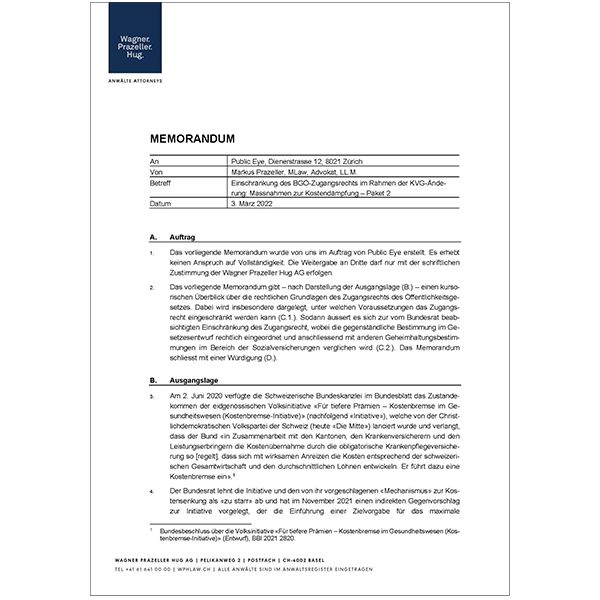A dangerous precedent for the Law on Transparency
The Law on Transparency (LTrans), in effect since 2006, introduced a fundamental principle of transparency in the administration to promote better democratic control and greater confidence in the population towards state institutions. The LTrans provides access to official documents to anyone who requests them, without any need for justification.
The LTrans also provides for exceptions that can limit, defer or refuse access to official documents. However, none of the exceptions mentioned in the LTrans apply to the price of medicines, which the Federal Office of Public Health (FOPH) is responsible for setting. In addition, case law considers that trade secrets cannot be invoked as an exception within the context of setting the price of a medicine.
Legalising a secret discount would constitute a new special provision in the sense of Article 4 of the LTrans; a first in relation to social insurance (like the compulsory health insurance). However, the legal opinion (available in French or German) demonstrates that the arguments put forward by the Federal Council to justify this special provision are not convincing at all from a legal point of view.
 ©
Mark Henley / Panos
©
Mark Henley / Panos
The arguments are rather motivated by a commercial policy that aims to grant additional privileges to the pharmaceutical industry. In reality, obtaining secret discounts constitutes a longstanding demand of the pharmaceutical industry that is seeking to maintain inflated official prices (list prices) without having to reveal the associated discounts, given that list prices are used as the basis of international comparison.
Utilising and weakening the principle of transparency for commercial reasons would constitute a dangerous precedent. While the funding of the compulsory health insurance comes in large part from the insured population, it is essential to guarantee a high level of transparency in relation to setting the price of medicines by the state, including negotiated rebates. Putting them under an additional leaden blanket would fly in the face of Switzerland’s transparency aims.


